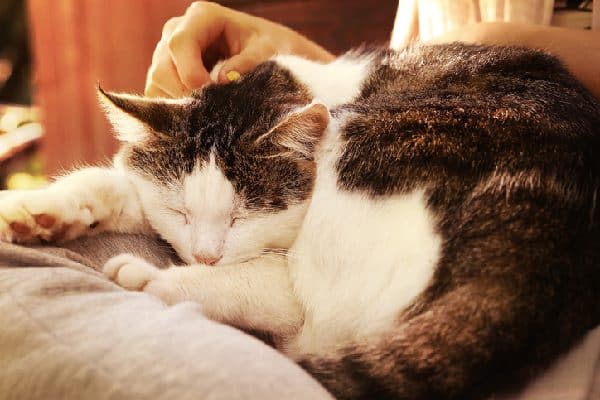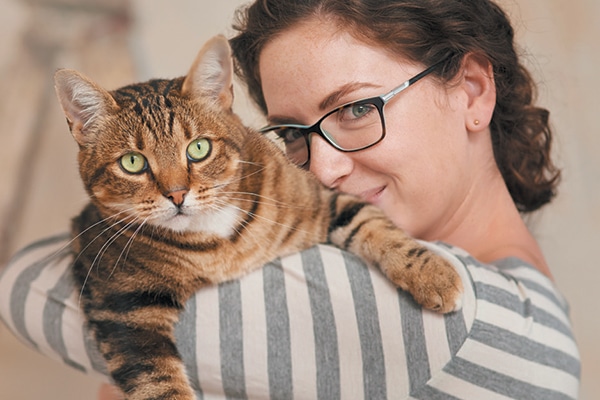Adding an older cat to your household is something every cat adopter should consider. Making sure you’re on the right track to keeping him healthy for many years to come requires a little bit of gumption, but it’s totally worth it.
Consider these six points when adopting a senior or geriatric cat.
Top 6 Things to Remember About a Senior Cat’s Needs
1. Consider your finances

“With age comes certain issues you will have to consult your veterinarian about,” says Lilo Bornhardt, with the Alachua County Humane Society in Florida. A yearly vet checkup is recommended, even if the cat is healthy — getting a baseline for his normal biometric levels will help identify any issues early enough to fix them.
2. Remember that senior cats might need special diets
“Senior cats will most likely have special diets,” says Richard Havens, executive director of the City of Amarillo’s Animal Management & Welfare in Texas. “Consulting your veterinarian will determine the best food for your older cat.”
Recommendations like feeding canned or fresh cat food should be followed: canned, wet food is higher in moisture content and contains fewer calories (good for a less active, older cat). However, some older cats become underweight, so again, starting with an animal medical professional is crucial.
In addition to following your vet’s advice, check the label, make sure there’s a reliable (and pronounceable) protein source first and not a lot of additives or by-products. Premium cat food is one of the best ways to ensure longevity.
3. Senior cats may also need additional medication
“If you notice issues with mobility, consider a joint supplement like Cosequin,” says Lauren McCarron, founder of Joyful Pets Animal Rescue in Massachusetts. It is also reported that elderly cats can benefit from additional supplementary immune system boosters such as antioxidants and Omega-3.
Some veterinarians also recommend glucosamine/chondroitin supplements, so address your cat’s individual health needs with your cat’s doctor.
4. Properly hydrate your senior cat
“In addition to wet food, get your senior cat a water fountain, so they are more encouraged to drink,” Lauren says. Proper hydration minimizes the chances of kidney failure, one of the leading causes of death in older cats. Keeping his bowl filled with fresh, clean water will also help keep him hydrated.
5. Adjust your home accordingly
What’s your cat’s physical prowess level? For some older cats, high cat trees are no problem, but for some seniors getting into the litter box could cause discomfort. Make sure there are enough low rungs on his kitty condo, along with a ramp to safely get him out, to keep your senior sweetie active and healthy.
And there are many options for geriatric cats: from lower-sided litter boxes to low-lying cat scratchers to cat heating pads that will keep his joints warm in the winter to a cooling mat for the summer.
6. Don’t forget playtime for senior cats
Even though your senior cat may not be able to high vault after the feather toy, he’ll still enjoy the interaction. “I had a cat who lived to 27 years old, who still liked following a feather wand (when they are older, you don’t need to have them jump and run), but their instincts to hunt are still there and simply dragging a feather toy past them will engage them,” Lauren says.
Read more about older cats on Catster.com:
- 8 Ways to Make the House Safe for Your Senior Cat
- 5 Things To Know About Bringing an Adult Cat Into Your Home
- Why You Should Consider Adopting an Older Cat Instead
Feature Thumbnail: Photography ©AJ_Watt | Getty Images.





